Pao School teaching assistants (TAs) are an important part of students’ journey through the school.
The role was created to support Pao School’s unique bilingual environment and cater to the teaching
needs of both Chinese and foreign teachers. The Primary School currently has 18 teaching assistants
focusing on three areas: classroom teaching, year group teaching, and subject teaching. According to
Primary Deputy Principal, Crick Chen, Pao School arranges dedicated TAs for each Year 1 class due
to their need for extra care, while some TAs in later years provide subject-related support.

Day-to-day work for Pao School TAs
Teaching assistants support both students and teachers. For instance, they help students who need in-classroom support, particularly when some students need extra academic help. In these cases, the subject teacher will apply to management for TA support, the situation will be evaluated, and then a TA will be arranged to provide customised assistance as needed. In addition, TAs maintain order in the classroom, prepare teaching materials, translate documents, arrange things like classroom seating and decoration, and also organise activities outside of class. Over the years, the TA role has adapted in tandem with the school’s own development, with many of those who began their careers at Pao School now growing to become teachers or take on middle-level management roles.
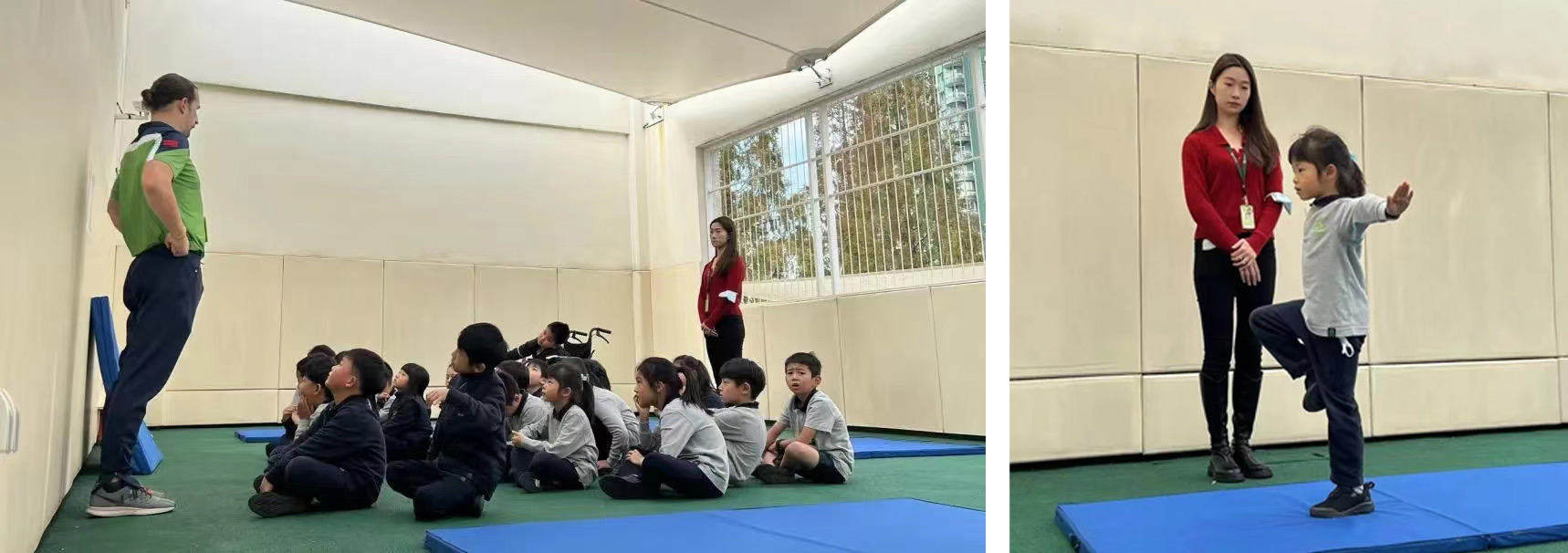
Subject teaching assistants provide support in classes like PE
Learning and Growing
Pao School prides itself on its atmosphere of continual learning and professional development, as such the school’s TAs are provided with various opportunities for their own growth. Ms. Crick Chen notes that, in order to give students the best education possible, the Primary School has designed a comprehensive training system for teaching assistants. Importantly, the programme reflects the difference in skills required for the TA role in comparison to teachers. As such, there are various programmes for TA training. For example, experienced Pao School teachers typically hold a training session for teaching assistants once a month, featuring topics that are closely related to their everyday work, such as child psychology, behaviour management, and language learning support.
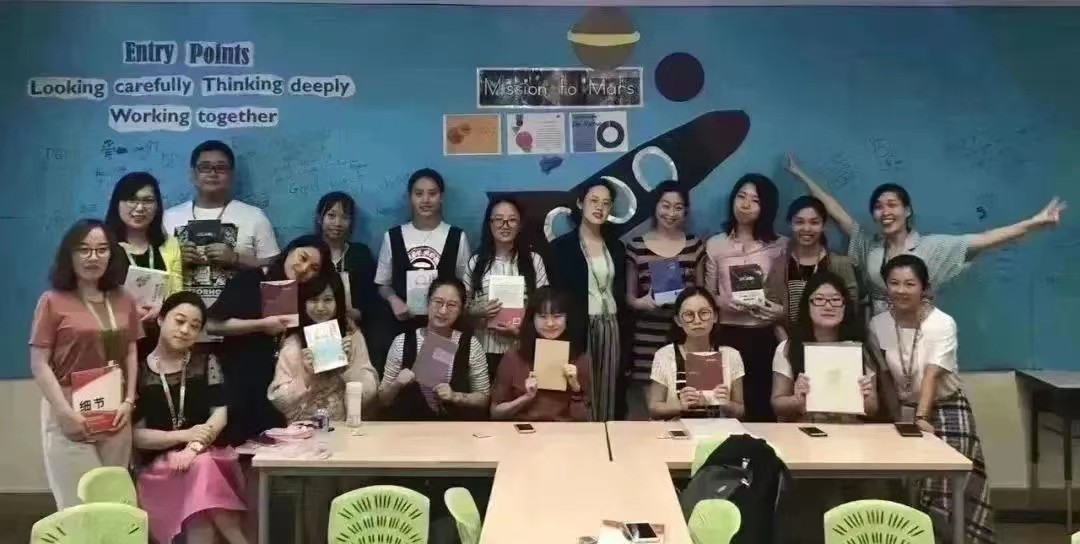
Since this teaching assistant training session in 2017, some of the group have become teachers
In addition to projects and training, Pao School holds reading-sharing sessions to help teaching assistants learn by studying through reading. For instance, in recent sessions, teaching assistants learned about topics such as emotional management and how to set boundaries for primary school students.
Diana Zuo, Primary School Professional Learning Lead, spoke at this week’s training on student behaviour management. In the session, Ms. Zuo spoke about how to motivate students, how to deal with conflicts between students, and how to handle behavioural issues. For this type of session, the school first speaks with the TAs to determine suitable training topics, then organises relevant training in areas that the TAs have self-identified for improvement. Teaching assistants find such training useful because they want to gain more experience in student behaviour management. Frank explains, "In general, we have a good relationship with students. Many of them even think of us as their friends. But this can have a downside too, because, though they are willing to be very open with us, if they think of us as friends, they may not be on their best behaviour. Balancing this aspect of being a teaching assistant is particularly challenging.
In addition, the “New Sprout Cup” programme offers teaching assistants another opportunity to improve and refine their skills. Teaching assistants who sign up for the programme are asked to complete a 15-minute demo class, where they prepare for the lesson and lead the class themselves. As they prepare, they can join subject group meetings attended by the principal, subject group leaders, and teachers, who provide them with feedback. This type of practical experience helps teaching assistants with ideas for class and is also beneficial for their career development.
Vicky, who joined Pao School this year, used to be a teacher in a training institution. As she hopes to work as a teacher in the future, she enjoys working as a TA as she can observe and learn teaching methods from her teacher colleagues and at the same time see how students perform in various subjects – which provides her with an opportunity to reflect on and improve her own teaching skills. In addition, she signed up for this year's "New Sprout Cup” programme and delivered a lively Chinese class to Year 3 students that was well received by both students and teachers. Of the process, Vicky says, "Pao School's classrooms are student-centred, and everyone benefits from the well-rounded curriculum design. Things like the layering of teaching content and after-class tasks have improved my teaching ability and they are also interesting in and of themselves.”
Patience, Companionship, and Understanding
Senior TA Frank Wang has been with Pao School since 2014. He notes that teaching assistants play a complementary role to teachers in the classroom because they communicate with students in a different way than teachers do and can observe the children in different ways. For instance, sometimes a teacher will notice that certain students seem to be unmotivated and have low energy. There can be many reasons for this, such as losing a game in a previous gym class or not being satisfied with other work from the day. In this type of situation, TAs give feedback to teachers on their observations about the students’ behaviour and mood, which then means appropriate adjustments can be made in the classroom.
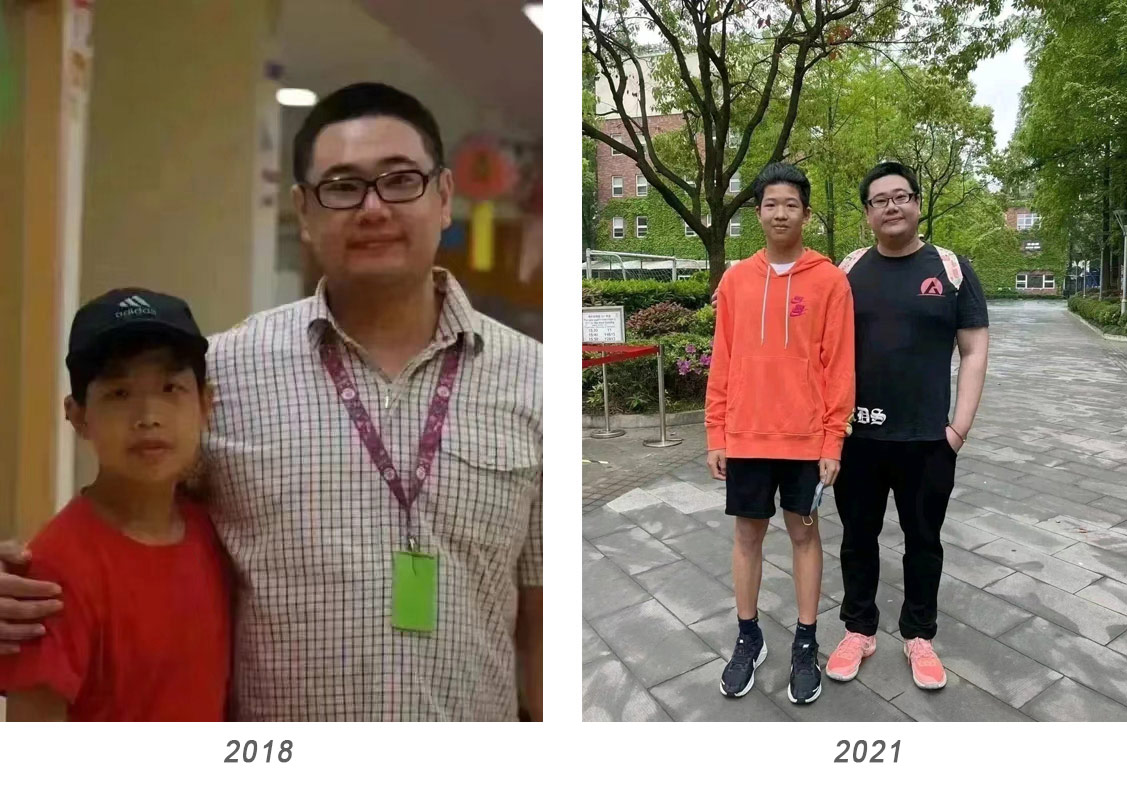
For Frank, the best part of being a TA is watching students grow up (Frank with student Keith)
“Sometimes we can tell that some students are a bit down, so we have a quick word with them about it. In some cases, it may be that the students did not sleep well the previous night, which I can then explain to the teacher,” Frank says.

Yvonne working on the Year 5 display area
Yvonne, Year 5 TA, has been working at Pao School since 2013. She believes that the most important qualities you need for the role are patience and the ability to serve as students’ companions. Yvonne recalls that, when she was a Year 1 TA, some children would tearfully say goodbye to their parents at the start of almost every school day. As younger children adapt to school life, TAs can play an important role in providing emotional support and in helping them get used to the new environment. Overall, Yvonne finds this work extremely rewarding as it is a long-term commitment to building trusting relationships with the students.
When asked about her favourite aspect of her job, Yvonne says, “I think what I like best is seeing the ‘change’ in students, seeing them mature, whether that means learning how to queue properly, organise things themselves, or ncrease their self-awareness. For older students especially, it is rewarding to see them going from thinking they know everything to gradually becoming more modest and willing to learn from others.”
Sharing Interests
Frank joined Pao School for several different reasons. On the one hand, he has always enjoyed working with children, and on the other, he believes in whole-person education as his own education has featured a good balance of academics, co-curriculars, and hobbies. Frank, who his students call the “Jack of all trades teacher” as he has a wide range of hobbies, has many interests, such as clarinet, American football, weightlifting, and physical training. With his many talents, Frank is able to communicate well with students, as well as guide them in sports activities such as swimming.
In order to give teaching assistants plenty of room to grow, Pao School also encourages them to offer co-curricular activities based on their interests. For example, Frank currently leads a German class, which allows him to share his German language skills with the students. He has been learning the language since he was in Year 6, making him an invaluable resource to children curious about the language.

Frank loves to take part in different sports in his spare time
Yvonne has been working as a TA for nine years and hopes to work in the area for many years to come. She decided to become a teaching assistant in part because of her interest in the field of education – which dates back to her university years. Additionally, she likes the day-to-day work of a teaching assistant, particularly in creative areas such as decorating classrooms and making handicrafts. One of her hobbies is embroidery, so this semester, she began an Embroidery CCA to share the art with the students. Commenting on Yvonne’s skills, Vicky, who partnered with Yvonne in Year 5, says, "She has a lot of good ideas and also has strong hands-on skills. I enjoy working as her assistant.”

A classroom display arranged by Yvonne
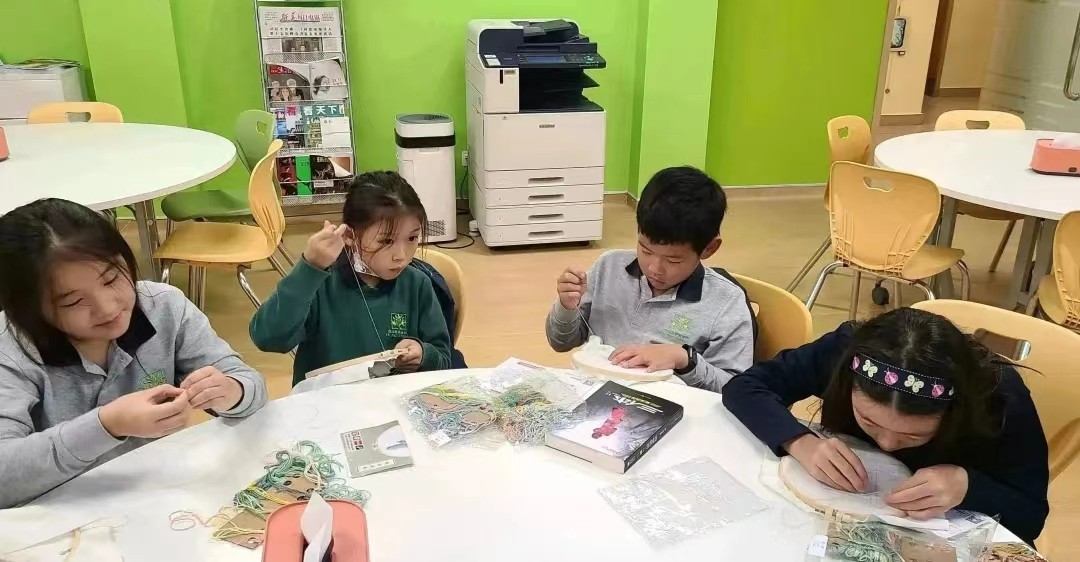
Students in the Embroidery CCA
Crick Chen feels that the TA role is extremely valuable, saying that they bring a youth and energy to the school. In addition, the TAs also have near infinite potential as future teachers and creative thinkers.
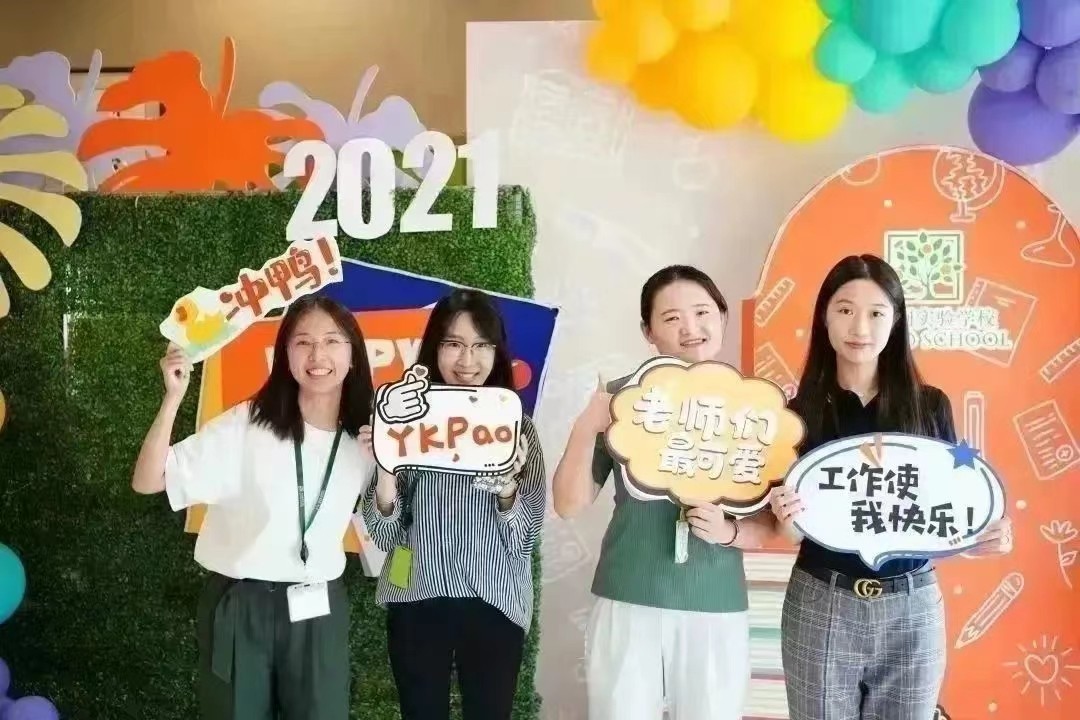
Pao School TAs on Teacher’s Day
At Pao School, we encourage lifelong learning and proactive communication. We hope
that every employee can develop themselves and that everyone's voice can be heard.
——Crick Chen, Primary Deputy Principal